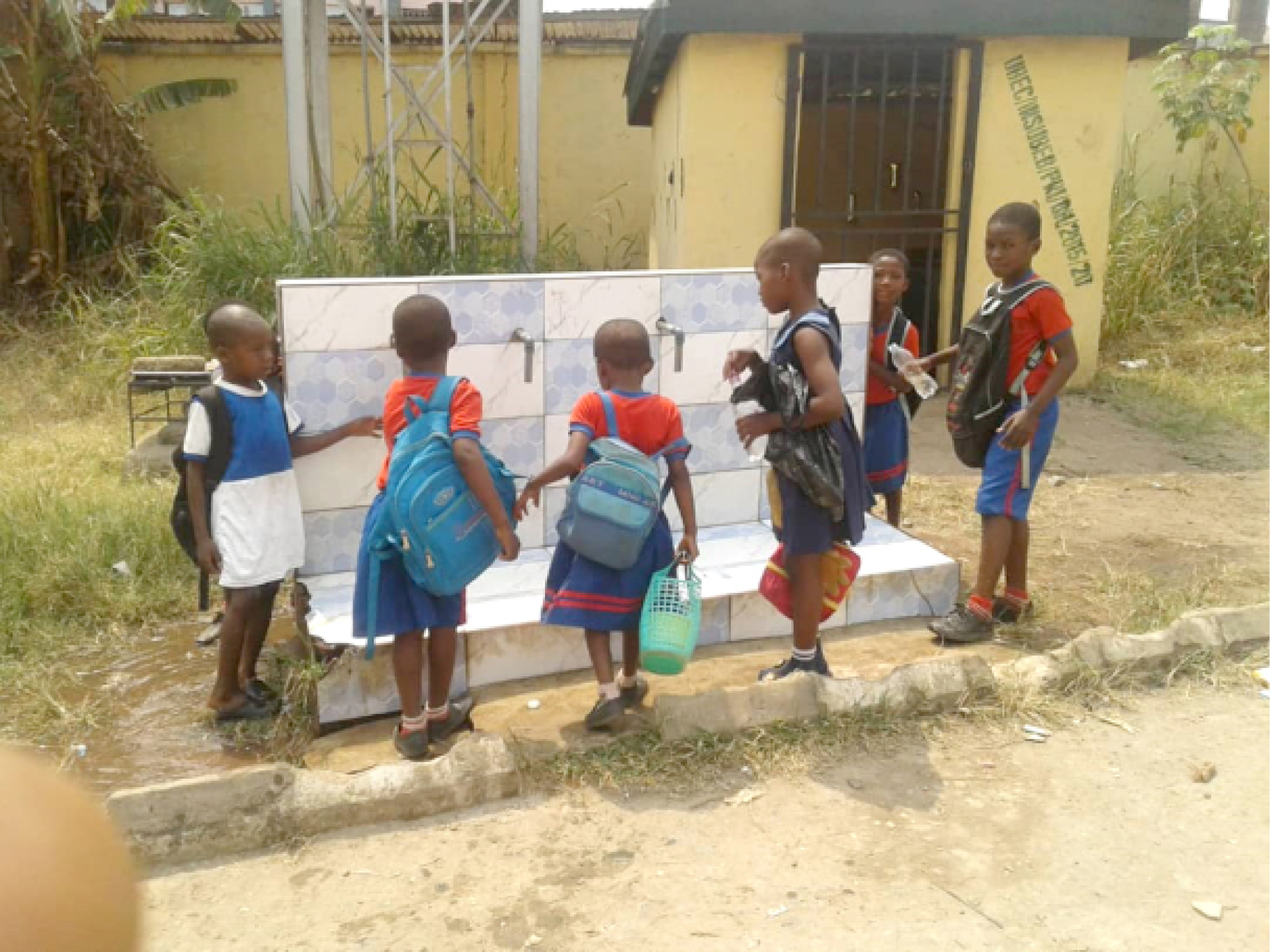Water scarcity hits Imo schools
Adequate provision of safe water, as well as improved sanitation facilities in schools, is said to be indespensable in the development of healthy behaviour for life. Pupils tend to concentrate better in class if they are not distracted by the effects of dehydration including thirst and tiredness. Again, the provision of better water, sanitation and […]

Pupils fetch water from a borehole at Township School, Owerri on Tuesday Photo: Jude Aguguo Owuamanam
Adequate provision of safe water, as well as improved sanitation facilities in schools, is said to be indespensable in the development of healthy behaviour for life.
Pupils tend to concentrate better in class if they are not distracted by the effects of dehydration including thirst and tiredness. Again, the provision of better water, sanitation and hygiene services in school reduces the number of school days missed every year by pupils due to hygiene-related diseases in addition to building the capacity to learn.
Conversely, millions of children, especially in rural communities, reportedly attend schools which have inadequate supply of safe water.
An investigation into the water and sanitation situation in schools in Imo State has revealed that more than half of the basic schools there have no adequate water supply.
The 2018 National Personnel Audit (NPA) report by the Universal Basic Education Commission (UBEC) on safe drinking in the primary school system showed that Imo State has only 7.73 per cent of public primary schools with safe drinking water. This means that nearly all the basic schools in the state have no safe drinking water.
One previous administration in the state, had in its Rescue Agenda embarked on the renovation of some primary schools, which he tagged as ‘City Schools,’ but water supply, as a major component in the school system, was uncared for.
For instance, at Development Primary School, Wetheral Road in Owerri, with a population of 1,420 pupils, the school had no source of water supply. The borehole in the school is still under construction; just as it has no serviceable toilets.
In the neighbouring Township Primary School with a pupil population of 1, 200, there was one borehole, which is barely enough to serve the population. The school also has only four toilets to serve the entire pupils.
Development Primary School, it was learnt, has to rely on the water and toilet facilities of Township School, since they shared the same premises.
Headmistress of Township Primary School, Mrs Maryrose Duru, told our correspondent that at the time the school was being renovated by the past administration of Governor Rochas Okorocha, little consideration was given to the water and sanitation situation in it.
Hundreds of pupils in the school and their colleagues in a neighbouring school fetch water from one borehole and as the population increases, the pupils are said to be feeling the pinch.
According to Mrs Duru, only four toilets and one borehole were provided to serve the entire pupils and teachers of the school.
“The situation was compounded because we have to share the facilities with Development Primary School. We have only one borehole and we pump water by using a generator. We spend a lot of money on fuel and repair of the generator.
“You know these are little children who need a lot of water. When we pump water, the entire population rushes to take water and within minutes, it is finished.”
The Headmistress, Development Primary School, Mrs Ethel Ezulike, also has tales of woe to tell. According to her, the former administration of Governor Emeka Ihedioha had sent some inspectors to assess the situation after the management complained.
“We appeal to the new administration to look into the situation because the sanitation system here is very poor due to lack of water.”
Some pupils, who spoke to our correspondent said but for the magnanimity of the neighbouring school, they would have had it rough with water and sanitation, adding that they had to go to school with water bottles.
The situation is however worse in rural areas where most of the schools do not have any source of portable water.
At Abba Central School in Nwangele Local Government Area of the state, there is virtually no source of water and toilet. The pupils have to defecate in nearby bushes with severe consequences.
Though the headmistress was not available for comments, the teachers and pupils, who spoke on the condition of anonymity, lamented the situation, saying it has affected the health and hygiene of pupils.
The situation is the same at the nearby Abba Community Primary School.
The Chairman of Imo State Universal Primary Education Board (IMSUBEB), Prof. Obioma Iheduru, simply said he had not read the UBEC report, adding that he would only comment when he has read the full report.
